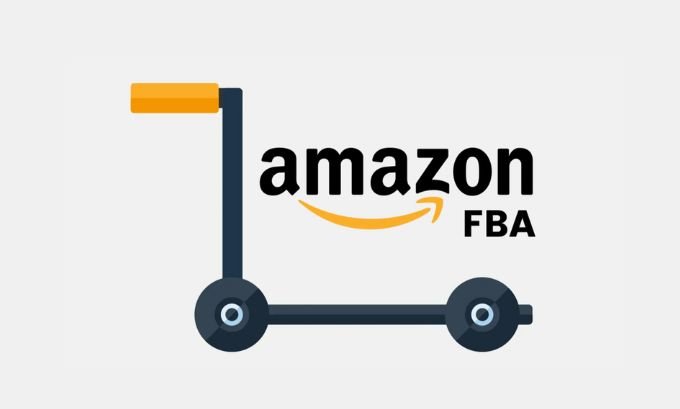Selling products online can be a profitable venture, but managing inventory, packing orders, and handling shipping can quickly become a full-time job. For many e-commerce entrepreneurs, this is where Amazon’s fulfillment service comes in, offering a streamlined way to get products into customers’ hands.
If you’ve heard the term “Amazon FBA” but aren’t quite sure what it involves, you’ve come to the right place. This guide will explain what Fulfillment by Amazon is, how it works, and its key advantages and disadvantages. By the end, you’ll have a clear understanding of whether this popular e-commerce model is the right choice for your business.
Table of Contents
What Exactly is Amazon FBA?
Fulfillment by Amazon (FBA) is a service that allows sellers to store their products in Amazon’s fulfillment centers. When a customer places an order, Amazon employees pick, pack, ship, and provide customer service for those products. In short, sellers sell, and Amazon handles the rest.
This model leverages Amazon’s massive logistics network, enabling businesses of all sizes to offer the same fast, reliable shipping that Amazon is known for, including Prime eligibility. Instead of managing a warehouse and dealing with the complexities of shipping, sellers can focus on sourcing products, marketing, and growing their brand. The service operates on a pay-as-you-go basis, where sellers are charged fees for storage and order fulfillment.
How Does Ama-zon FBA Work?
Getting started with FBA involves a few straightforward steps. Once you’ve set up your Ama-zon seller account, the process generally looks like this:
- List Your Products: You begin by creating product listings in your Ama-zon Seller Central account. You’ll need to specify that these items will be fulfilled by Ama-zon.
- Prepare Your Products: Next, you prepare your products according to Ama-zon’s strict packaging and labeling requirements. This ensures they can be safely stored and easily identified within the fulfillment centers. Each item needs a unique barcode.
- Ship to Ama-zon: You then ship your inventory to one or more of Ama-zon’s designated fulfillment centers. Ama-zon’s system will tell you where to send your products to optimize for distribution across the country.
- Ama-zon Stores Your Inventory: Once your products arrive, Ama-zon scans them and adds them to its inventory. You can track your stock levels directly from your Seller Central dashboard.
- Customers Place Orders: When a customer purchases your product on Ama-zon, the fulfillment process begins automatically. Your listing will often be marked with the “Prime” badge, making it more attractive to millions of subscribers.
- Ama-zon Picks, Packs, and Ships: Ama-zon’s warehouse staff locates the item, packs it into an Ama-zon-branded box, and ships it to the customer. They handle all shipping logistics and provide tracking information.
- Customer Service and Returns: Ama-zon also manages customer service inquiries and processes returns for your FBA orders. This frees you from handling post-purchase support.
- You Get Paid: Ama-zon deposits your sales revenue into your bank account every two weeks, after deducting its FBA fees and other selling fees.

FBA vs. FBM: What’s the Difference?
When you sell on Ama-zon, you have two main fulfillment options: FBA and FBM (Fulfillment by Merchant). In the FBM model, the seller is responsible for storing inventory and handling all aspects of picking, packing, and shipping orders themselves.
The best choice depends on your business’s specific needs, volume, and resources. Here’s a breakdown of the key differences:
| Feature | Fulfillment by Ama-zon (FBA) | Fulfillment by Merchant (FBM) |
|---|---|---|
| Inventory Storage | Stored in Ama-zon’s fulfillment centers. | Stored by the seller (e.g., in a home, office, or warehouse). |
| Order Fulfillment | Ama-zon picks, packs, and ships orders. | The seller is responsible for all fulfillment tasks. |
| Shipping | Handled by Ama-zon using its network; products are Prime-eligible. | The seller arranges and pays for shipping. |
| Customer Service | Managed by Ama-zon for FBA orders. | The seller handles all customer inquiries and issues. |
| Returns | Processed by Ama-zon. | The seller manages their own return process. |
| Fees | Fulfillment fees and monthly storage fees. | Only standard Ama-zon referral fees apply. |
| Control | Less control over inventory and packaging presentation. | Full control over inventory, packaging, and branding. |
| Ideal For | Sellers wanting to scale quickly and outsource logistics. | Sellers with low volume, large items, or those who prefer hands-on control. |
The Pros and Cons of Using Ama-zon FBA
While FBA offers significant benefits, it’s not without its drawbacks. Weighing the pros and cons is essential before committing to the service.
Advantages of FBA
- Access to Ama-zon Prime: One of the biggest perks is that your products automatically become eligible for Ama-zon Prime free two-day shipping. This can dramatically increase sales, as Prime members are more likely to buy Prime-eligible items.
- Outsourced Logistics: FBA handles the time-consuming tasks of packing, shipping, and customer service. This frees you up to focus on other critical areas of your business, like product sourcing and marketing.
- Improved Customer Trust: Customers trust Ama-zon’s reliable shipping and customer service. Having the “Fulfilled by Ama-zon” badge on your listing can boost buyer confidence and lead to higher conversion rates.
- Scalability: With FBA, your business can scale without the need to invest in your own warehouse space or hire fulfillment staff. Ama-zon’s network can handle fluctuations in order volume, especially during peak seasons.
Disadvantages of FBA
- Fulfillment and Storage Fees: FBA is not free. You’ll pay fees for order fulfillment and for storing your inventory in Ama-zon’s warehouses. Long-term storage fees can be particularly costly if your products don’t sell quickly.
- Strict Product Preparation Requirements: Ama-zon has detailed and rigid requirements for how products must be prepped and labeled before being sent to their fulfillment centers. Failure to comply can result in penalties or refusal of your shipment.
- Loss of Control: When you use FBA, you give up control over your inventory and packaging. You can’t add custom branding touches or inserts to your packages, which can be a drawback for brands wanting to build a unique customer experience.
- Commingled Inventory Risks: By default, Ama-zon may “commingle” your inventory with identical products from other sellers. This means a customer could order from you but receive a counterfeit or lower-quality item from another seller’s stock, potentially leading to negative reviews and account issues.
Is Ama-zon FBA Right for You?
Fulfillment by Ama-zon has revolutionized e-commerce, giving small businesses the logistical power to compete with major retailers. By outsourcing storage, shipping, and customer service, sellers can focus on growth and strategy. However, the service comes with costs and a loss of control that may not be suitable for every business.
If you have fast-selling products, want to leverage the power of Ama-zon Prime, and prefer a hands-off approach to logistics, FBA could be a game-changer for your business. For those with slow-moving inventory, oversized items, or a desire for complete control over branding, FBM might be a better fit.
Ultimately, the decision depends on your products, profit margins, and long-term business goals. By carefully evaluating the pros and cons, you can determine if Ama-zon FBA is the right partner to help you succeed.
Frequently Asked Questions
How much does Ama-zon FBA cost?
The cost of FBA depends on the size and weight of your products. Fees include fulfillment fees (per unit sold) and monthly inventory storage fees (per cubic foot). There are also potential long-term storage fees for items that remain in a fulfillment center for more than 365 days.
Can I sell on other channels if I use FBA?
Yes. Ama-zon offers a program called Multi-Channel Fulfillment (MCF), which allows you to use your FBA inventory to fulfill orders from other sales channels, such as your own website or another marketplace.
What kind of products are best for FBA?
Small, lightweight, and high-margin products tend to perform best with FBA. These items are cheaper to store and ship, which helps maximize your profit after FBA fees are deducted.
Do I need an LLC to start selling on Ama-zon FBA?
No, you do not need an LLC to start selling on Ama-zon. You can begin as a sole proprietor. However, many sellers choose to form an LLC later to protect their personal assets and gain potential tax advantages as their business grows.
Understand the Ama-zon FBA advantages and disadvantages and discover unique Japanese snacks at Tokyo Mart
